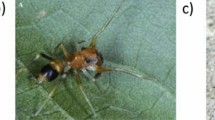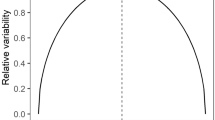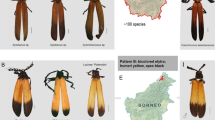Abstract
REFERRING to the interesting note on “The Distastefulness of Anosia plexippus” in NATURE of October 12, I should like to suggest that the experiment, though interesting in itself, does not materially strengthen the case for the usefulness of mimicry. To make a good case for mimicry in the sense in which that term is ordinarily used, the mimic Basilarchia archippus should be tested and found palatable. Further, if mimicry means anything at all with reference to these two species, North American birds should eat some butterflies but not molest Basilarchia archippus. So far as observations have been reported, American birds eat butterflies very rarely, and there is no evidence, so far as I know, either from direct observation or from the thousands of stomach-content examinations made by the United States Department of Agriculture, that its non-mimetic relatives are eaten more often than Basilarchia archippus.
This is a preview of subscription content, access via your institution
Access options
Subscribe to this journal
Receive 51 print issues and online access
$199.00 per year
only $3.90 per issue
Buy this article
- Purchase on Springer Link
- Instant access to full article PDF
Prices may be subject to local taxes which are calculated during checkout
Similar content being viewed by others
Author information
Authors and Affiliations
Rights and permissions
About this article
Cite this article
BANTA, A. The Distastefulness of Anosia plexippus. Nature 88, 243 (1911). https://doi.org/10.1038/088243b0
Issue Date:
DOI: https://doi.org/10.1038/088243b0
Comments
By submitting a comment you agree to abide by our Terms and Community Guidelines. If you find something abusive or that does not comply with our terms or guidelines please flag it as inappropriate.



